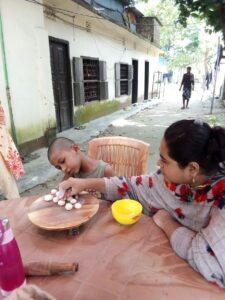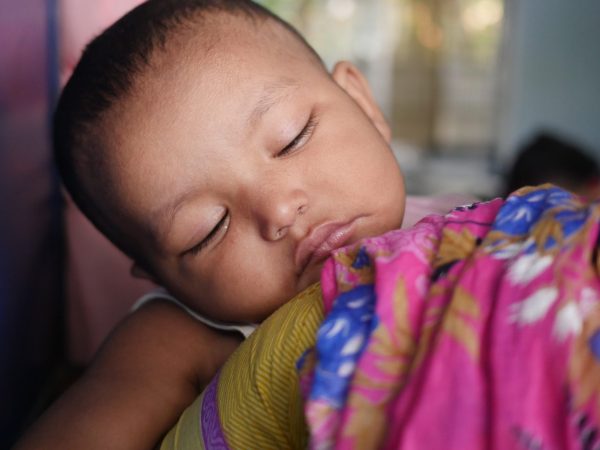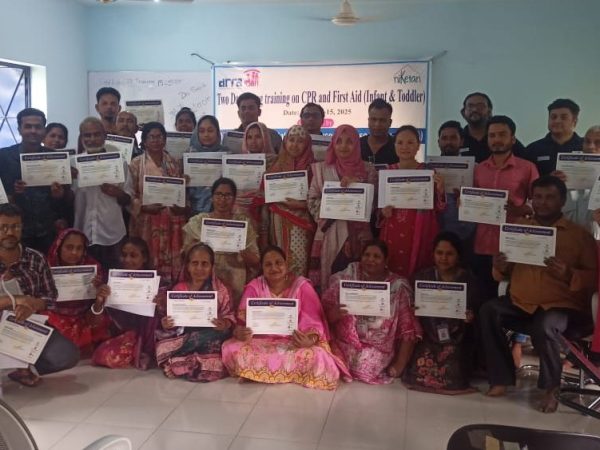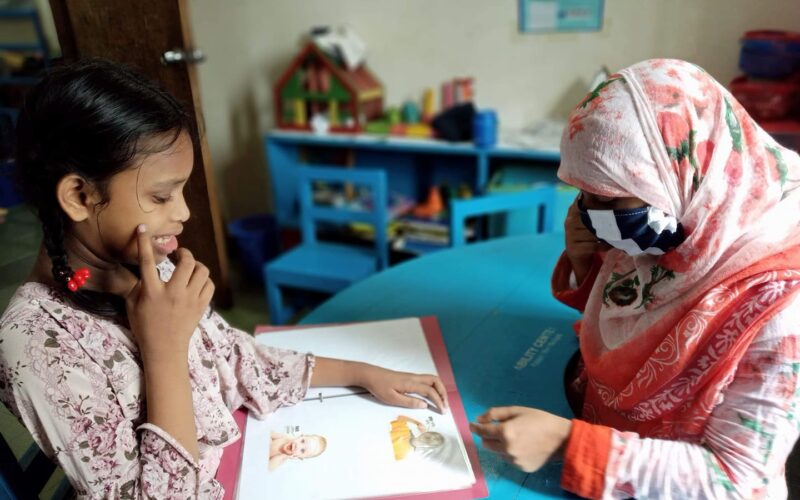News Covid-19 update
As in the Netherlands, Bangladesh has been hit by the Covid-19 pandemic since March 2020. And just like in the Netherlands, many people in Bangladesh follow social distancing and face cover rules less and less, resulting in further spreading of the virus. Unfortunately, the healthcare system in Bangladesh is not up to the mark. While doctors and nurses are doing everything in their power to save lives, many hospitals in Bangladesh refuse entry for people with Covid-19.
Furthermore, government financial aid for the poor disappears due to corruption and ends up in the wrong pockets. The poor get poorer and it is predicted that more than 41% Bangladeshis will soon be living below the poverty line again.
 In May, Niketan got permission to resume its project work, following the rules of social distancing and use of facemasks. From distance digital education we changed to home schools. We now work with small classes on verandahs of people’s homes for shorter periods of time, both providing physical therapy for those who need this and education. The children were so happy to meet with their teacher again. We were worried, especially for those with multiple disabilities that their development had stagnated during the lockdown.
In May, Niketan got permission to resume its project work, following the rules of social distancing and use of facemasks. From distance digital education we changed to home schools. We now work with small classes on verandahs of people’s homes for shorter periods of time, both providing physical therapy for those who need this and education. The children were so happy to meet with their teacher again. We were worried, especially for those with multiple disabilities that their development had stagnated during the lockdown.
“Because of the Covid-19 crisis, my son Alif (5 years) cannot not go to the Centre. I will try to do his therapy at home, but I can already see that his physical condition is going backwards. I cannot get him in his standing-frame or stretch his legs. To make matters worse, my husband lost his job, so we cannot buy Alif’s epilepsy drugs. Alif also had a fever during this period, but because of corona, we were not allowed to take him to the doctor. Without an income we can no longer buy food. We are now so happy for the financial support from Niketan. This allows us to buy medicines and food and to survive this crisis”. Mother of Alif
The COVID-19 pandemic harms the health, social and material well-being of children around the world, with the poorest children, including children with disabilities such as in Bangladesh, hit hardest.
The lockdown, social distancing, and school closure (and missing out on school-feeding) increases the risk of poor nutrition. It also raises children’s exposure to domestic- and other violence. We see that more children are experiencing anxiety and stress. Even though Niketan tried to reduce the loss of schooling days with an online curriculum and distance teacher support, the poorest children with disabilities live in home learning environments that have no internet connection. In addition, most parents themselves experienced too much stress to be able to take good care of their children.
Also read about the effect of the floods on the lives of children with disabilities.



